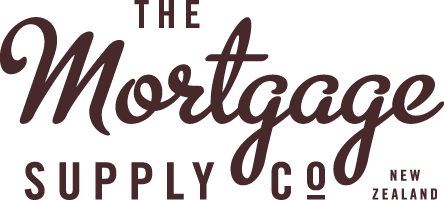
Going into any kind of venture with friends or family where costs and responsibilities are shared can prove to be a risky strategy. However, in today's rising housing market where prices and competition are high, sometimes splitting the cost of investment with people you trust is a great way to get ahead and climb the property ladder.
At a glance, there are a bunch of great benefits to owning a house with friends or family, including:
- Sharing the upfront costs when buying a property, including the price of the house, legal costs and the various reports required
- Sharing the ongoing costs like your mortgage repayments, maintenance when things go wrong, rates and property management fees
- The freedom to sell your share or leave your share to whomever you choose
Sounds pretty good right? There definitely are some valuable upsides - but before jumping in, make sure to consider the following information and risks.
Joint Tenancy vs. Tenancy in Common
You might be wondering what the difference between owning a house with a partner and owning a house with family members or friends is. Typically, there are two types of tenancies to suit each kind of home ownership.
1. Joint Tenancy
Joint tenancy is an agreement usually adopted by married couples or people in a defacto relationship as it automatically gives both parties an equal stake in the property. Both parties are equally liable for the mortgage, your credit rating and repayments are linked and if one person passes away, their share of the property is left to the other person.
2. Tenancy in Common
Tenancy in common is the second type of a agreement and is typically suited to anyone not in a couple like friends or family members. The ownership or percentage of investment can be divided however you request, and if one person dies, their share of the property will go directly to their estate.
Need help understanding terminology, risks and benefits? Our friends at MIUWI are specialists in it, and can offer you a helping hand from the start of the process, right through to purchase. Check them out, here.
The Risks of Home Ownership with Friends or Family
Although there are very obvious benefits to sharing the cost of a house, there are a few immediate risks to consider before going down the road of shared property ownership.
Limited Mortgage Options
If you've seen our flexible mortgage rate blog, you'll know that there are a number of different mortgage options available with varying degrees of flexibility. However, when you're entering a complicated tenancy in common agreement, you're also risking narrow in down your options for mortgage types and limiting your repayment flexibility.
While some lenders may be favourable towards joint property ownership, others will avoid it completely, knowing the complications it can entail. For this reason, we'd advise thoroughly researching your options and asking a mortgage adviser about any limitations you might be likely to experience.
Mortgage Liability
The first thing to consider is that you'll be liable for the entirety of the mortgage, even though you only own a share of the house. That means that if one other person in the arrangement can't make payments or their circumstances change, all other owners must cover the shortfall. If you're the only other owner of the property, you're going to be entirely liable to cover the costs.
Credit Record Linking
A little known nuance of home ownership with friends or family is that your credit record will be linked to your co-owner's. Essentially, any financial irresponsibility from either party will result in the other's being negatively effected.
Limited Potential to Buy Other Property
If you're looking at investing in additional property in the future it's important to be aware that banks will only consider your share of the house as an asset, but take into account the entirety of the mortgage as a liability.
Why?
If things go wrong you're liable to cover the whole mortgage, which means that the banks have to account for this in their calculations, potentially limiting your ability to borrow.
Steps to Take Before Co-Ownership
Knowing the full scope of benefits, limitations and risks that go alongside with owning a property with friends or family, you may come out feeling like it's still the right decision and the positives outweigh the negatives. After all, it certainly lowers the cost and may allow an opening into the property market for those who may not be able to invest otherwise.
If that's the case for you, then we'd recommend taking the following steps before beginning the great house hunt and making your first offer.
Ask the Tough Questions
It's easy to assume that just because you're family or have a solid track record as close friends that everything will be smooth sailing - and for some, this genuinely is the case. However for others, as soon as finances, shares and emotional attachment begin to mix, problems can arise. That's why it's key to ask the tough questions and write down the answers before you even begin thinking about entering a binding agreement.
These might include:
- What are you priorities in terms of location for the house?
- What kind of house would you like to buy?
- How have you managed your finances in the past (is there anything I should know)?
- Are you expecting to live at the property or to rent the house out?
- If we're going to be flatting in the house together long-term, what happens if one of us gets a partner or has children?
- What happens if one person wants (or needs) to sell before the other is ready?
- What if one of us loses our job or is unable to work for a period of time?
- How will we approach maintenance costs or unexpected bills that arise?
- Are you happy for pets to live at the house?
- Who will cover premiums on insurance?
- What will you do if you need to sell and the house prices have fallen (and we make a loss)?
Some of these questions might feel like awkward things to ask, but remember, they're going to want to know the same things of you and it's better to ask beforehand and rule out any sticky situations before the pressure is on.
Our Final Tips
Always prepare for the unexpected and never rely entirely on your partner to cover the costs - the unexpected may happen, and it’s important to be prepared for it ahead of time. Your insurance provider will be able to help and guide you through this process.
Before you make any agreements, make sure to get legal advice on your situation and request a joint venture agreement. This is a legal document that should spell out each partner’s responsibilities and what they will get out of the investment. Having a robust framework in place where expectations are clear from the get-go will be the difference between a successful or unsuccessful venture.
Finally, always consult with a mortgage adviser to ensure you know all of your options and put yourself in the best position to make a good decision for all parties involved. If you'd like to hear more about the options available or simply need clarity on anything in this blog, we'd be more than happy to help - just click below.










